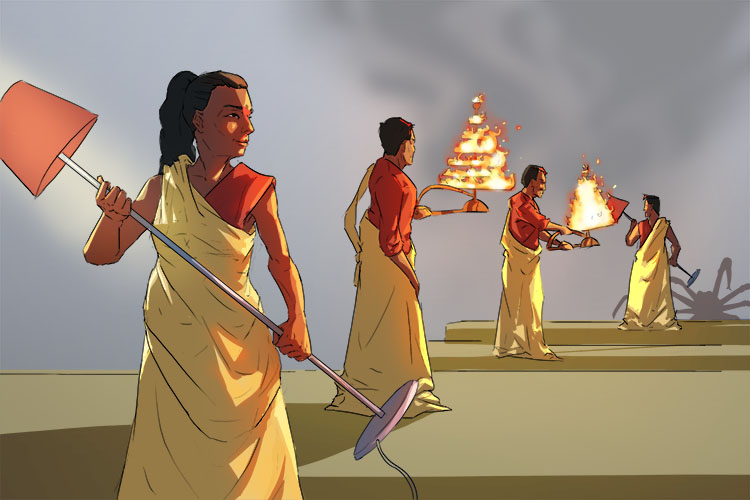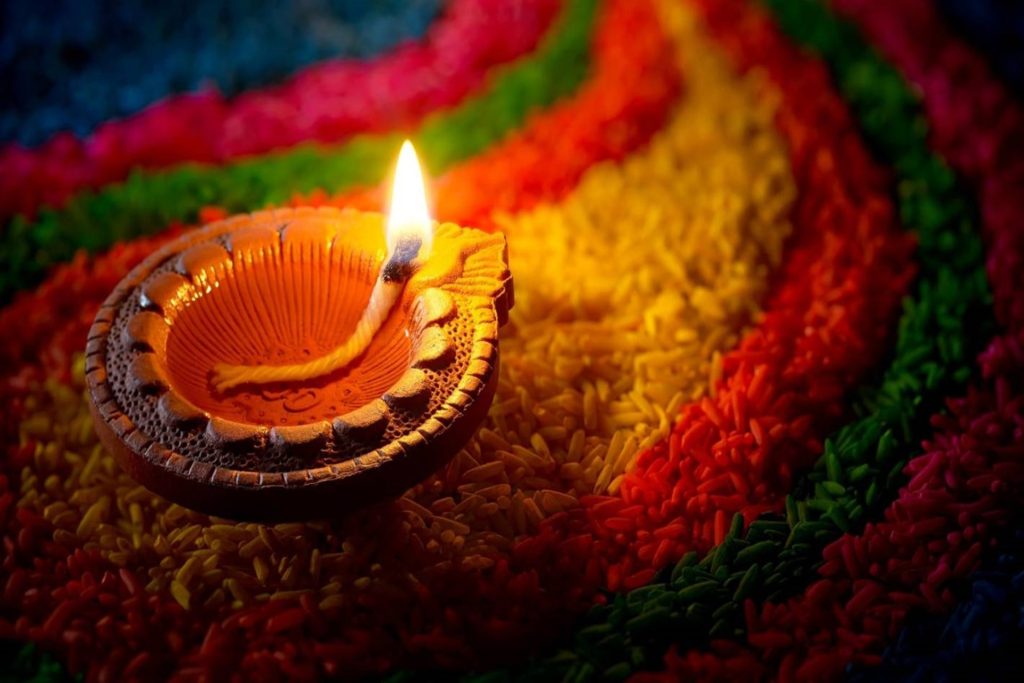Explore the deep spiritual meanings of Arati in Hindu and Sikh traditions, highlighting Guru Nanak's teachings on nature's tribute over ritual worship.
Explore the intriguing portrayal of Adam in the Guru Granth Sahib and its parallels to the biblical account, highlighting divine disapproval and consequences.
BIHAGRE KI VAR, by Guru Ram Das, is one of the twenty-two vars included in the Guru Granth Sahib. The Var, originally comprised pauris which were prefaced with slokas, or couplets, by Guru Arjan at the time of the compilation of the Guru Granth Sahib. All the twenty-one pauris are of the composition of Guru Ram Das. Of the forty-three slokas, thirty-three are by Guru Amar Das, four by Guru Nanak, two each by Guru Ram Das and Guru Arjan, one by Kabir and one by Mardana. Each pauri is preceded by two sJokas except pauri 12 which has three sJokas prefixed to it.
CHANDI DJ VAR (the Ballad of goddess Chandi) or, to give it its exact title, Var Sri Bhagauti Ji Ki, by Guru Gobind Singh and included in the Dasam Granth, is the story of the titan tic contest between Chandi and other gods on the one hand and the demons on the other. The poem all egorizes the eternal conflict between good and evil. The source of the legend is "Devi mahatmya," a section of the Markandeyapurana, and the narrative follows, in the main, the classical detail though the dominant interest lies in the character of Chandi which, through the creative genius of the poet. attains reality and firmness belying its mythical origin.
DASAM GRANTH (lit. the Tenth Book, generally signifying the Book of the Tenth Guru) is how the collection of compositions attributed to the Tenth Guru, Guru Gobind Singh, is named to distinguish it from the earlier work, the Adi Granth, the First or Primary Book, compiled by Guru Arjan, the fifth in the spiritual line from Guru Nanak and to which Guru Gobind Singh added the hymns of the Ninth Guru, Guru Tegh Bahadur, for bearing from adding any of his own. His own compositions were gathered into a separate volume. According to Kesar Singh Chhibbar, Bansavalinama Dasan Patshahian Ka, the two volumes sat in gurdwaras separately when in Sammat 1755 (AD 1698), Sikhs, says Chhibbar, proposed to Guru Gobind Singh that the two Granths be got bound together into one volume. But the Guru spoke, "This one is Adi Guru Granth, the root book; that one is only for my diversion.
DIVALI, festival of lights (from Sanskrit dipamala or dipavali meaning row of lamps or nocturnal illumination), is observed all over India on amavasya, the last day of the dark half of the lunar month of Kartika (October-November). Like other seasonal festivals, Divali has been celebrated since time immemorial. In its earliest form, it was regarded as a means to ward off, expel or appease the malignant spirits of darkness and ill luck. The festival is usually linked with the return to Ayodhya of Lord Rama at the end of his fourteen year exile. For the Hindus it is also an occasion for the worship of Laksmi, the goddess of good fortune, beauty and wealth.
GHUMAN, village 10 km west of Sri Hargobindpur (30°41`N, 75°29`E) in Gurdaspur district of the Punjab. Namdev (1270-1350), the muchrevered saint of Maharashtra, some of whose hymns are included in the Guru Granth Sahib, lived in this village for a considerable time. Most of his years until the age of 55 were spent at Pandharpur, in Sholapur district of Maharashtra. Then he journeyed extensively through north India and returned to Maharashtra after 18 years. During this period, he also visited the Punjab and, according to tradition, made Ghuman his seat of residence.
Discover the tale of Guru Arjan and the vengeance against Chandu Shah. A narrative of pain, betrayal, and justice in historical India.
Explore the life of Hazara Singh, a celebrated scholar and educator from Amritsar, enriched Punjabi literature with works like Guru Granth Kosh and Dulhan Darpan.





